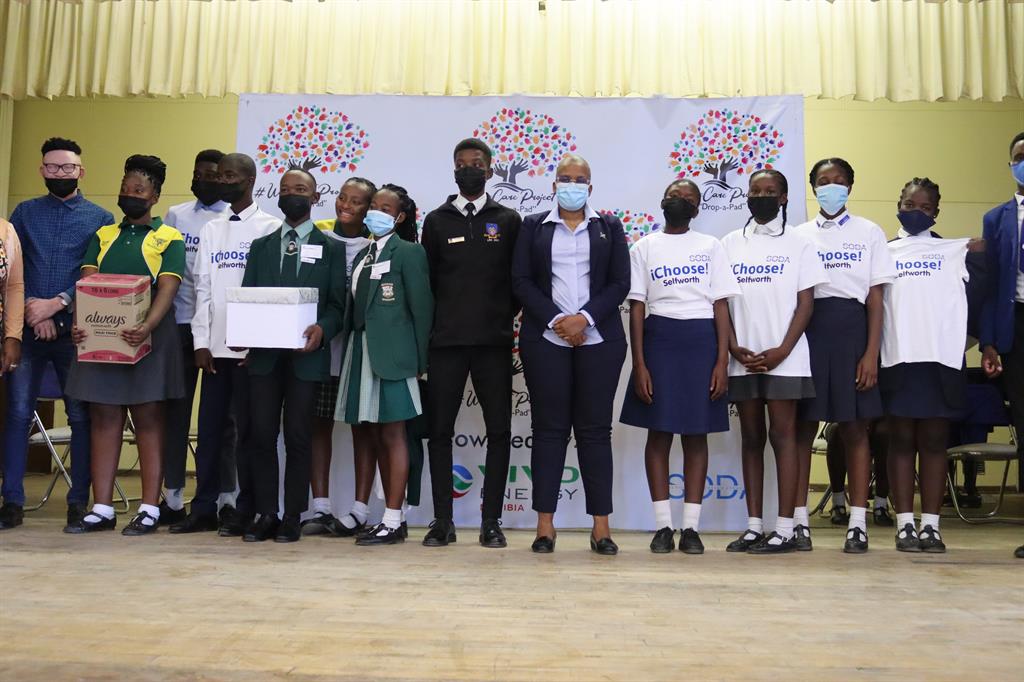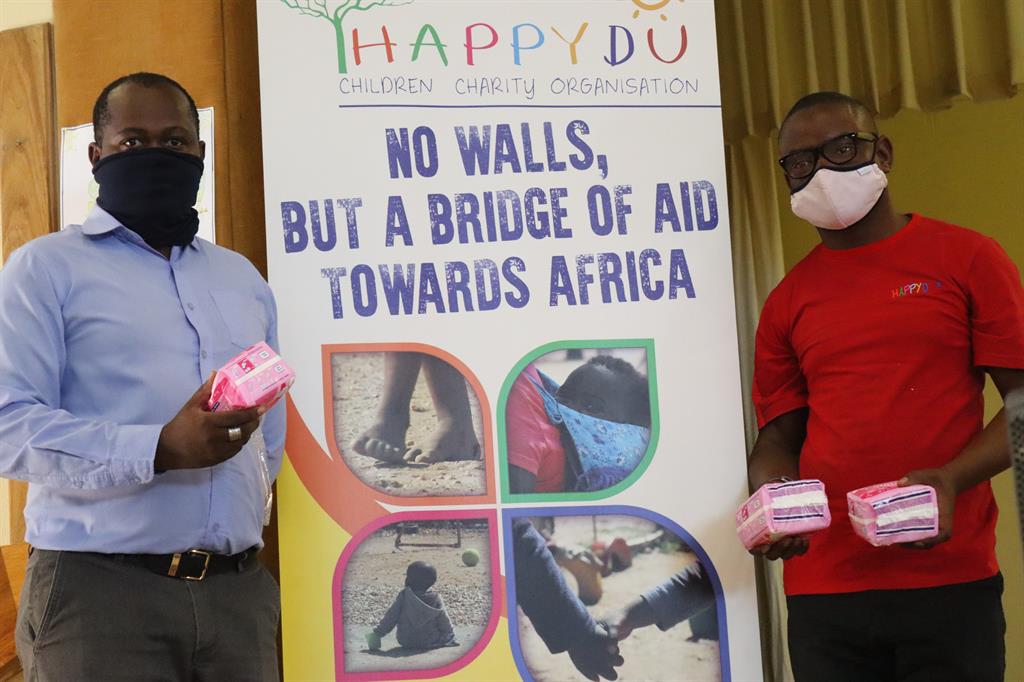Blowing out somebody else’s candle won’t make yours shine
The launch of the School of Destiny Association (SODA) Consultancy ‘We Care’ project of the School Talk Show (STS)
Emilie Mandume
The ‘We Care’ project was established under the School of Destiny Association (SODA) Consultancy and launched in February 2021. The initial aim is to provide practical tools of self-awareness, self-discipline/leadership skills and character building, which they believe will help school-going youth to navigate towards making appropriate daily choices.
The project launched its first episode of the School Talk Show (STS) on Monday, 11 October 2021 in Windhoek at Jan Mohr Secondary School on the topic ‘Self-Worth and Anti-Bullying’.
The STS is an interactive panel discussion between the Boys’ Clubs and Girls’ Clubs from the 11 different project schools in four regions.
The launch was attended by the minister of justice, Yvonne Dausab, who was the keynote speaker, Children’s Parliament deputy chair Happydu, project representatives and Boys’ Clubs from seven project schools in Windhoek.
The first discussion was hosted by Hendrina Kanyola from One Africa TV. She and the learners from the Boys’ Clubs and Girls’ Clubs spoke about what self-worth means to them; how to introduce at school; is it a problem that learners have at school; and is there a link between bullying and self-worth.
“Self-worth is when you value or disvalue yourself as a human being; it can be determined by whether you let yourself be broken down by another person or use other people’s words lift it,” said Rejoice, a Girls’ Club member.
Belinda, head girl of Jan Mohr, said, “The more confident you are, the less likely you are to be bullied. Bullies feed on your weaknesses and project their insecurities onto you.”
Minister Dausab said self-worth is really about you and how you see yourself, it is personal and internal. The minister added that when people bully you it is because you see yourself in a certain way and a lot of it has to do with your background. She gave an example of how she was bullied in grade 2 for not having roll-on, instead of the bully helping her.
“This programme is a diversity that allows us to interact with each other in a way that we can have future plans and standards,” said Cedrick, a learner from Immanuel Shifidi High School.
The ‘We Care’ project was established under the School of Destiny Association (SODA) Consultancy and launched in February 2021. The initial aim is to provide practical tools of self-awareness, self-discipline/leadership skills and character building, which they believe will help school-going youth to navigate towards making appropriate daily choices.
The project launched its first episode of the School Talk Show (STS) on Monday, 11 October 2021 in Windhoek at Jan Mohr Secondary School on the topic ‘Self-Worth and Anti-Bullying’.
The STS is an interactive panel discussion between the Boys’ Clubs and Girls’ Clubs from the 11 different project schools in four regions.
The launch was attended by the minister of justice, Yvonne Dausab, who was the keynote speaker, Children’s Parliament deputy chair Happydu, project representatives and Boys’ Clubs from seven project schools in Windhoek.
The first discussion was hosted by Hendrina Kanyola from One Africa TV. She and the learners from the Boys’ Clubs and Girls’ Clubs spoke about what self-worth means to them; how to introduce at school; is it a problem that learners have at school; and is there a link between bullying and self-worth.
“Self-worth is when you value or disvalue yourself as a human being; it can be determined by whether you let yourself be broken down by another person or use other people’s words lift it,” said Rejoice, a Girls’ Club member.
Belinda, head girl of Jan Mohr, said, “The more confident you are, the less likely you are to be bullied. Bullies feed on your weaknesses and project their insecurities onto you.”
Minister Dausab said self-worth is really about you and how you see yourself, it is personal and internal. The minister added that when people bully you it is because you see yourself in a certain way and a lot of it has to do with your background. She gave an example of how she was bullied in grade 2 for not having roll-on, instead of the bully helping her.
“This programme is a diversity that allows us to interact with each other in a way that we can have future plans and standards,” said Cedrick, a learner from Immanuel Shifidi High School.





Kommentaar
Republikein
Geen kommentaar is op hierdie artikel gelaat nie